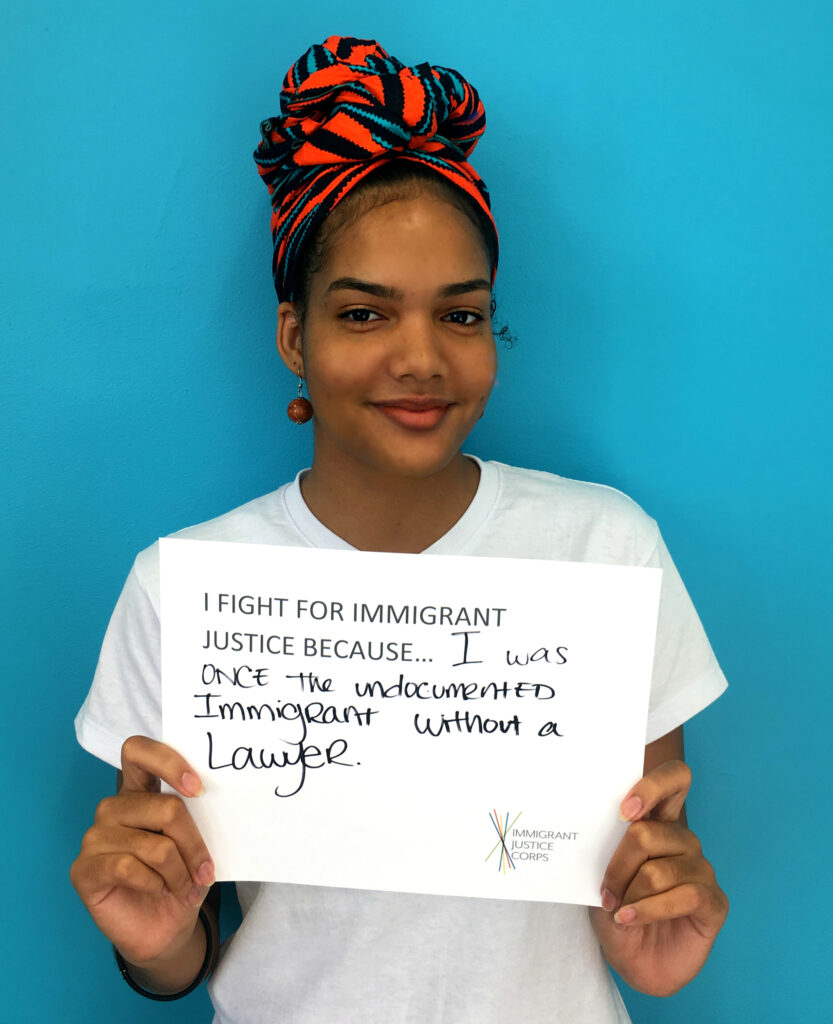Fellow feature: Cristian G. Gonzalez Perez
IJC Fellows are on the frontlines of the fight to expand access to immigrant justice. Our Justice Fellows provide a broad range of relief to their clients, from from removal defense, to affirmative asylum applications to securing special relief for juveniles and victims of crime, domestic violence or human trafficking.
Below, 2023 Justice Fellow Cristian G. Gonzalez Perez reflects on his experience with the U.S. immigration system and on the importance lawyers play in upholding immigrants’ rights.
“Give me your tired, your poor, your huddled masses yearning to breathe free, the wretched refuse of your teeming shore. Send these, the homeless, tempest-tost to me, I lift my lamp beside the golden door!” The poem written at the foot of the Statute of Liberty serves as a beacon of hope and aspiration for those coming to the U.S. for a new life and escaping dangers in their country. One would think that the immigration system in the U.S. would embrace with open arms the people that the poem describes. In practice, the immigration systems dehumanizes, traumatizes, and victimizes the most vulnerable. Immigration hardliners and nativists claim the immigration system is broken. It is not, it is a system that is working as intended as it inflicts as much trauma as possible for those in the system. Our role as lawyers is to ensure that the rights of the people caught in such a barbaric system are protected.
Ideally everyone should have an attorney to represent them in immigration court, which is civil in nature, but with an end result that is comparable to the death penalty. People in removal proceedings are placed in constant fear and stress of being returned to a country that they fled, not because they wanted, but because they were forced to. People forced to leave their country in order to avoid being beaten, discriminated, and killed. So how does a system designed to maximize suffering and trauma prevent lawyers – the beacons of society that can protect your rights – from participating and interfering in the process? Simple, by making it as hard and difficult for the attorney to speak with their client. The detention centers are located far away from cities, often requiring a day’s worth of travel to get there. Even when you get to the detention center there is no guarantee that you’ll speak with your client. The detention centers have policies in place that require attorneys to sign forms before they are allowed to speak with their clients. Once inside, you are made to wait for what sometimes feels like hours – figuratively and literally – in a cold room with no access with the outside world. While sitting in the room waiting for your client, you ponder whether the detention center staff forgot about you.
Perhaps the experience in immigration court is better and simpler, right? Wrong. Immigration judges interpret the law in very inconsistent manners. Many forms of available relief are discretionary. This means that the fate of your client, whether they receive bond and are freed from the detention center or get to remain in the United States, depends on the judge’s mood. Even on occasions when the law takes away that discretion, the immigration judges can go out of their way to make the hearing as unpleasant as possible for your client. For instance, they can be critical of your client for speaking before the interpreter finishes speaking, or can ask questions that open old traumatic wounds. The system works as intended.
It’s no wonder Shakespeare in his play Henry VI recognized that in order to deprive people of their rights and move to a more tyrannical government, the first people that you get rid of are lawyers. Since I started my IJC fellowship, my experience has served to highlight the importance and difference we make despite fighting an upstream battle against a system designed to make people suffer and surrender. It is in spite of the system that I have come to cherish those victories achieved thus far, and push forward to fight another day.
